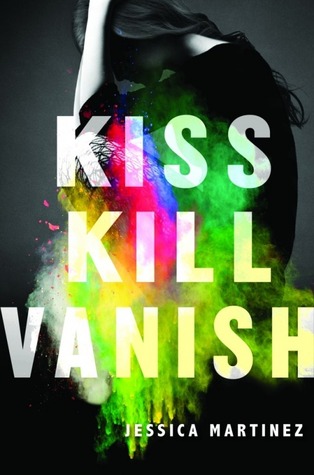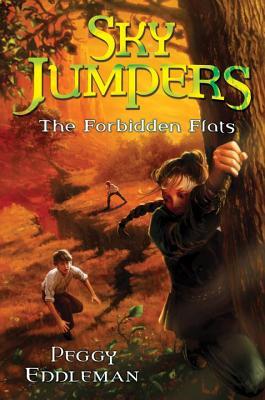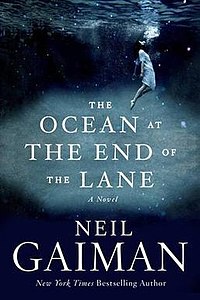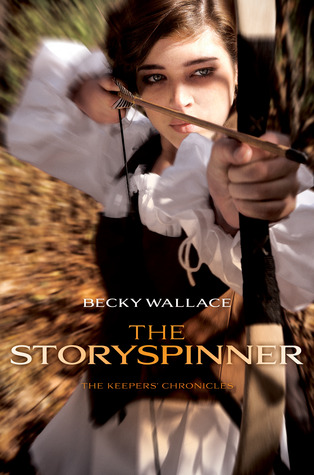Last week, as part of the quarterly "How-To" theme, I posted some tips on writing--and querying--a book. The post was designed primarily for people who aspire to write but aren't very far on their journey. I thought I'd repost here, as I think the information is helpful.

Step One: Write
As far as writing, you simply have to start. Carve out time, even if it’s only fifteen or twenty minutes. Write. I’ve taught writing to a lot of college students, and many of them want to know the secret to writing well. But there is no secret: just practice. I tell them, write a lot. And read.
Neil Gaiman was once asked the trick of becoming a writer. His answer is pretty near perfect: “the only way to do it [write] is to do it.”
Step Two: Find readers
Any good writer will tell you that good writing isn’t possible without good readers. Once you’ve got something written (or even as you write), let it sit for a while, and then find people you trust to tell you how to make it better.
Step Three: Learn about your Craft
Becoming a good writer isn’t just about writing–it’s also about learning to make your writing better. Good readers can help. But you’ll also want to learn about the craft of writing; I heard LDS author Janette Rallison recommend that new writers not send out their work until they’ve read at least one book on craft. Some of my favorite craft books include Anne Lamott’s Bird by Bird, Stephen King’s On Writing, Robert McKee’s Story, and Janice Hardy’s website, Fiction University (not a book, but oh-so-helpful).
Also, go to writing conferences. LDStorymakers‘ annual conference is next month, and it’ s a great place to meet other writers (including potential readers), agents, and editors. (I met my agent there last year). Emily and I will both be there this year. If you write for children or young adults, SCBWI (The Society for Children’s Book Writers and Illustrators) has local and national events and conferences. Not only are conferences a great place to learn about the business, but there’s a synergy that comes from being around people with your same goals that always motivates me to work harder.
Step Four: Revise
The more I write and teach writing, the more convinced I become that the best writers aren’t naturally good writers–they’re good revisers. Very few of us nail our vision on the first time through, and those people, as Anne Lamott reminds us in Bird by Bird, generally aren’t people we like very much anyway.
Step Five: Decide on a Publishing Path
These days, there are lots of different ways for writers to put their work out there. Some choose to self publish, via Createspace or any number of other methods. That can be a great choice, especially for people who want full creative control over their manuscript. But it isn’t, as it happens, a path that I personally know much about.
Another option is publishing with small or regional presses (like Covenant, Deseret Book, Cedar Fort, Jolly Fish Press, and many more). Most of these presses will take submissions directly from authors, so you can start submitting as soon as your manuscript is done.
However, I knew fairly early on that I wanted to try for a traditional publisher (which typically refers to one of the “big five” publishing companies–Penguin Random House, Macmillan, HarperCollins, Hachette and Simon & Schuster–as well as to smaller but more established mid-size presses, like Norton, Houghton Mifflin Harcourt, Hyperion). Part of this stems from a sense of legitimacy: I’m also a part-time English professor, and I knew that landing a book deal with a bigger company would garner more respect from my colleagues. (Which maybe isn’t the best reason for deciding on a publishing path).
But publishing with a traditional publisher means, more often than not, that you also need a literary agent to represent you because these publishers won’t take unagented submissions. Finding an agent can take time–months or years, in some cases. It took me two manuscripts and nearly four years to get an agent. Good places to start looking for an agent include Agent Query, Query Tracker, and Writers Digest’s Guide to Literary Agents. I also like looking at the acknowledgment pages of my favorite books to see which agents represent those authors I love. However, just because someone says they are an agent doesn’t mean they are a good agent: you can also check places like Publisher’s Marketplace that report agent deals (which requires a subscription and is self-reported, so not always accurate) and the forums at Absolute Write (where writers report their experiences with different agencies) and Preditors and Editors.
Step Six: Send Query Letters
A query letter is essentially a cover letter for your book: it explains what your book is about and what your qualifications are as a writer. Whether you opt for small presses or finding an agent, you’ll have to write one. Some of my favorite resources on writing queries are here and here and here. Even when you’ve written a query, try to get several different pairs of eyes on it, including people who haven’t read your book.
A word of warning: querying is rough. Even authors who go on to be successful have lots of rejections. In my most recent round of querying, I sent close to fifty queries. I was relatively successful (I had requests from just over half of those queries), but even those requests mostly turned into rejections. (You can read more on my take on querying here).
Step Seven: Wait
Once you’ve sent out queries, it takes time to hear back from agents and editors. If an agent does want to represent you, they will typically set up a time to call and talk about your book and their plans for it (known in the industry as “The Call”).
Once you accept an agent’s offer, the agent typically asks for still more revisions before sending your book out on submission to editors. This looks a lot like querying, except that you have less control over what happens: your agent acts as an intermediary, sending the materials out and getting the responses from editors. In my case, my editor called or forwarded me the information every time an editor passed on my book (which was 11 out of 12 editors, in my case).
But if you’re lucky, one day you might also get the call you’ve been waiting for–where your agent calls to say, “We’ve sold your book!” (In my case, to Michelle Frey at Knopf books).
Then you celebrate–and wait some more. For edits, copy edits, proofs, and eventual publication. Most of the Big Five publishers buy books 18 months to 2 years out from their publication date. (My book sold in February. It won’t come out until Fall 2016).
While this post is long, it’s also only a fraction of the information out there on the process of publishing a book. But for anyone interested, I’m happy to answer questions about the process in the comments!






